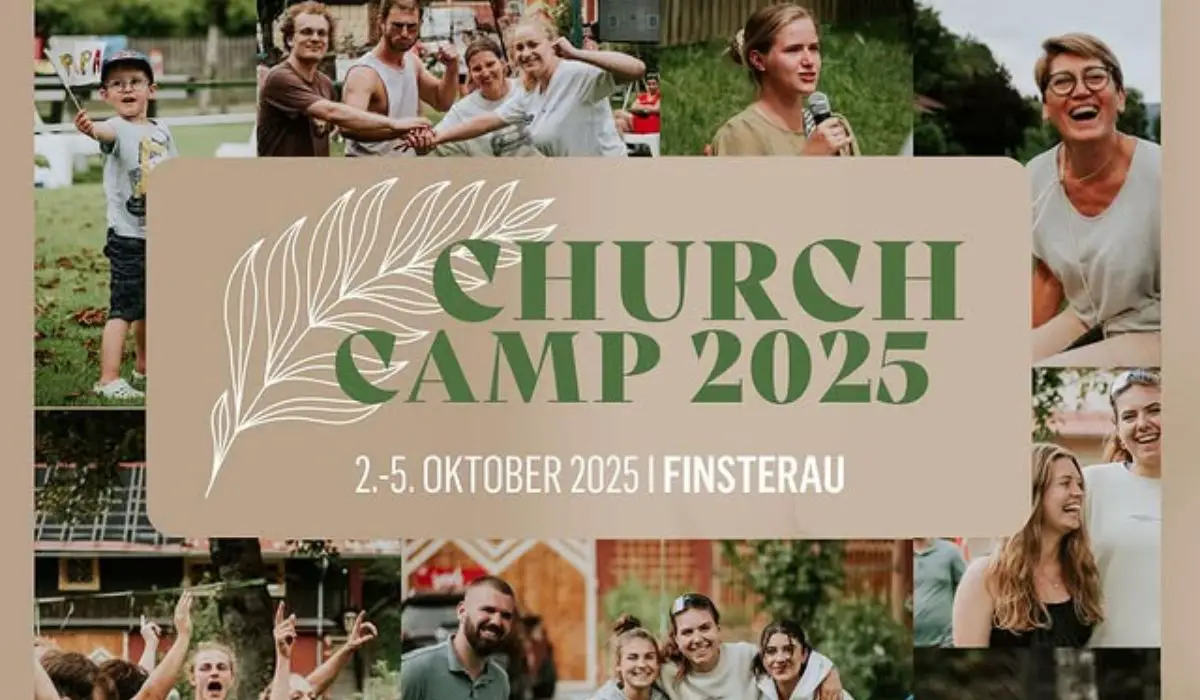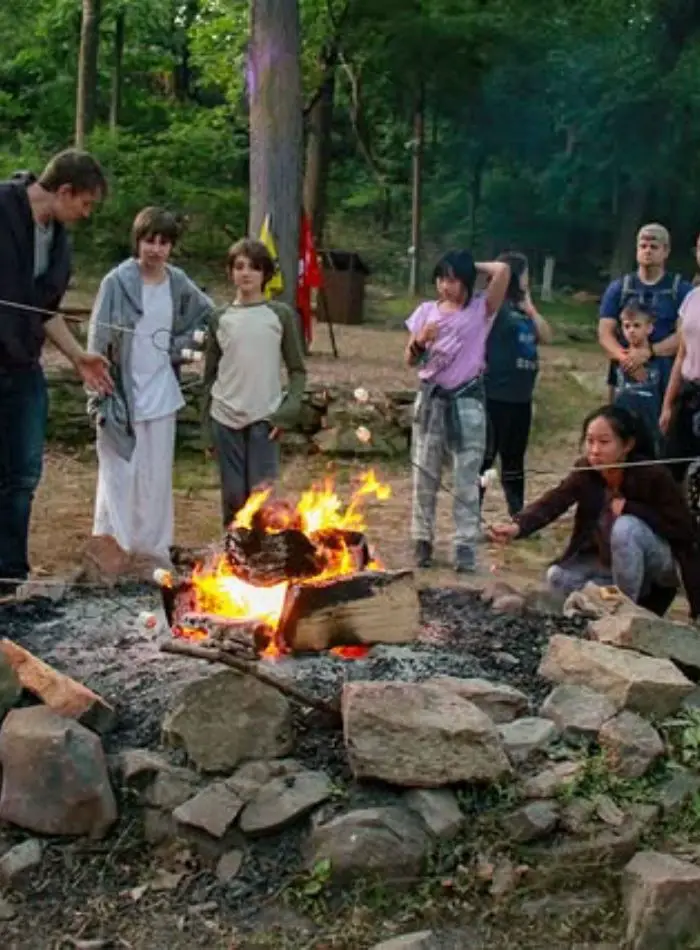Activities at Church Camp

Church Camp have been a long-standing tradition in many Christian communities, offering participants a chance to grow spiritually, build lasting friendships, and engage in recreational activities.
These camps, whether they are day camps, overnight camps, or week-long retreats, are not only about outdoor adventures and fun—they serve as an important space for spiritual renewal and personal growth. For many, church camp is a transformative experience that strengthens their faith, deepens their relationships, and provides lifelong memories.
In this article, we will explore the purpose, benefits, and activities of Church Camp, as well as how they contribute to personal and spiritual development.
The Purpose of Church Camp:
At its core, the primary purpose of a church camp is to provide a setting where individuals—often youth—can grow in their faith. These camps aim to create a community centered around Christian values and teachings. Whether it’s through daily worship services, Bible studies, or group discussions, participants have the opportunity to learn about God’s word in a fun, interactive, and safe environment.
While church camps are often associated with youth groups, they are not exclusive to children and teenagers. Many churches also offer camps for adults, families, and other members of the community. These camps may focus on different aspects of faith, from personal spiritual growth to building stronger family relationships.
1. Spiritual Growth
One of the most significant aspects of church camp is the opportunity for spiritual growth. In today’s fast-paced world, it can be difficult to find time for personal reflection and prayer. Church camps offer an environment that encourages spiritual development, free from distractions. Participants are given ample time to focus on their faith, learn new aspects of scripture, and grow closer to God.
2. Fellowship and Community Building
Another key benefit of church camps is the sense of fellowship they foster. For many participants, church camp is the place where they form deep, lasting friendships. The shared experiences of worship, recreation, and discussion allow participants to connect on a personal level. They are often placed in small groups, where they can bond with others in a supportive and nurturing environment.
Through this fellowship, campers not only grow in their relationship with God but also build connections with others who share similar values and beliefs. These friendships can have a lasting impact, providing a network of support throughout life.
3. Fun and Recreation
While the spiritual and community-building aspects of church camps are essential, the fun and recreation offered at these camps are equally important. Activities like hiking, swimming, sports, and arts and crafts allow campers to enjoy the outdoors and engage in physical activities in a safe environment. These recreational activities help to break down barriers, creating an atmosphere of joy and relaxation that encourages campers to open up and share their thoughts and experiences.
4. Leadership Development
Church camps also serve as a great opportunity for leadership development. Many camps offer training and mentorship programs that prepare campers for leadership roles in their communities and churches. Older campers may have the chance to serve as counselors or activity leaders, providing guidance to younger participants while also developing valuable leadership skills.
These experiences are instrumental in shaping the next generation of Christian leaders, encouraging them to serve with compassion, wisdom, and integrity.
Types of Church Camps:
Church camps come in many shapes and sizes, each catering to a specific group or purpose. Some of the most common types of church camps include:
1. Youth Camps
Youth camps are the most popular type of church camp, offering activities and spiritual programs geared toward children and teenagers. These camps often include worship services, Bible studies, games, outdoor activities, and team-building exercises. Youth camps provide a supportive environment for young people to explore their faith, develop meaningful relationships, and have fun.
Many youth camps also offer specific programs for different age groups, ensuring that all campers are engaged and challenged appropriately.
2. Family Camps
Family camps are designed to accommodate families who want to experience church camp together. These camps offer activities that allow families to bond while also focusing on spiritual growth. Family camps typically include worship services, group devotionals, and activities like hiking, canoeing, and cooking.
These camps are an excellent opportunity for families to strengthen their relationships and build a foundation of faith that will carry them through life’s challenges.
3. Adult Camps
While youth camps may dominate the church camp scene, many churches also offer camps for adults. These retreats provide an opportunity for adults to step away from the hustle and bustle of everyday life and focus on their personal spiritual growth.
Adult camps often include Bible studies, worship services, and discussion groups, providing a space for individuals to connect with others in similar stages of life and explore their faith at a deeper level.
4. Special Needs Camps
Churches also offer camps for individuals with special needs. These camps are designed to provide a safe and supportive environment for people with physical or mental disabilities. Staff members at special needs camps are often trained to provide individualized care and attention to ensure that all participants can fully engage in the camp experience.
These camps foster a sense of belonging and inclusivity, allowing everyone to experience the joy of church camp regardless of their abilities.
5. Missions Camps
Missions camps are designed for individuals who want to serve others while growing in their faith. These camps focus on outreach, service, and evangelism, often sending campers on short-term mission trips to various locations. Campers may work on construction projects, provide humanitarian aid, or engage in local outreach initiatives.
Missions camps allow participants to actively live out their faith by serving others and sharing the gospel.
6. Activities at Church Camp
Church camp is not just about worship and Bible studies; there are a wide variety of activities designed to engage campers in both spiritual and recreational pursuits. Some common activities include:
7. Bible Studies and Devotionals
Bible studies and devotionals are key components of church camp. Campers are often divided into small groups for Bible study sessions, where they can read scripture, discuss its meaning, and share personal reflections. Devotionals, which are short, focused sessions on specific topics, may be led by camp counselors or other leaders. These sessions provide valuable time for campers to reflect on their faith and apply biblical teachings to their daily lives.
Outdoor Activities:
Outdoor activities are an integral part of church camps, providing a chance for campers to enjoy nature and engage in physical activities. These activities may include hiking, swimming, rock climbing, zip-lining, canoeing, and more. Outdoor activities allow participants to bond with others while also encouraging physical health and wellness.
1. Team-building Games
Many church camps include team-building activities designed to foster collaboration and cooperation. These games encourage campers to work together to solve problems, build trust, and develop leadership skills. Whether it’s a relay race, an obstacle course, or a cooperative game, team-building activities help campers form deeper connections with one another.
2. Arts and Crafts
For those who enjoy creativity, arts and crafts activities are often offered at church camps. These activities allow campers to express themselves artistically while also reflecting on spiritual themes.
Campers might create pieces of art inspired by Bible stories, make jewelry, or design camp-themed souvenirs.
The Lasting Impact of Church Camp:
Church camp has a lasting impact on its participants. For many, it is a life-changing experience that leaves a permanent mark on their faith and personal development. The friendships formed at camp often last a lifetime, providing a network of support and encouragement long after the camp ends.
The spiritual growth experienced at church camp can have a profound effect on how individuals approach their faith and daily lives. Campers often return home with a renewed sense of purpose and a deeper commitment to living out their Christian values. For some, church camp is the catalyst that sparks a lifetime of service, ministry, and leadership within the church community.
Fine More: Oregon Travel Tips
Last Call:
Church camp is more than just a summer activity—it’s a transformative experience that provides spiritual growth, fellowship, and personal development. Whether it’s a youth camp, family retreat, or missions camp, church camp offers participants the opportunity to deepen their relationship with God, build lasting friendships, and enjoy a variety of recreational activities.
The lessons learned and memories made at church camp often stay with individuals for a lifetime, shaping their faith and their lives in meaningful ways.
If you’ve never experienced church camp, consider attending or sending your children—it could be a life-changing experience for everyone involved.
FAQs:
1. What is the purpose of a church camp?
Church camps provide a space for spiritual growth, community building, and recreational activities. They help participants strengthen their faith, build lasting friendships, and engage in fun activities in a supportive Christian environment.
2. Who can attend church camp?
Church camps are open to individuals of all ages, from children and youth to adults and families. Many camps offer different programs tailored to specific age groups and needs.
3. What activities are available at church camp?
Activities at church camps include worship services, Bible studies, outdoor adventures (like hiking and swimming), team-building games, arts and crafts, and leadership development opportunities.
4. How does a church camp help with personal growth?
Church camps encourage personal growth by providing opportunities for participants to reflect on their faith, engage in meaningful conversations, build leadership skills, and form close connections with others in the community.
5. Are there church camps for individuals with special needs?
Yes, many churches offer specialized camps for individuals with physical or mental disabilities, ensuring an inclusive environment where everyone can participate and grow spiritually.






